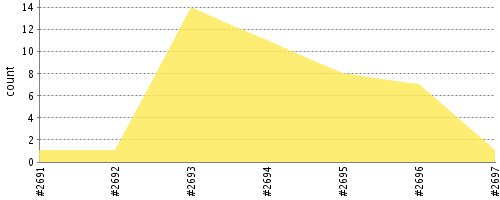Test-driven source code formatting
May 2, 2011
This morning, I had to fight a production error in an application I support. It turns out that using SELECT * statements with Spring JDBC can cause problems when you add new columns to the table. It has something to do with Oracle caching; I'm not sure.
So, SELECT * statements are evil. But how do you ensure your codebase doesn't contain any? Being a good test-driven developer, I wanted to have a failing test before making wide swaths of changes to my source code. The solution I settled on was to write a new static analysis rule, using Checkstyle, to warn me when it identified a SELECT * statement. Here's what it looks like (you can put this in a Checkstyle v5 xml file):
<module name="RegexpSinglelineJava">
<property name="format" value="SELECT.*[\. ]\*"/>
<property name="ignoreComments" value="true"/>
<property name="message" value="Do not use SELECT * statements"/>
</module>
It's a regular expression that looks for a SELECT, followed by anything, and then either a dot or a space followed by the asterisk. This way, we can capture:
SELECT * from table
SELECT t.* from table t
But not:
SELECT count(*) from table
Adding this check to our build immediately caught 13 instances where we performed this nefarious deed. Using a continuous integration build like Hudson, it was easy to identify and track how we were progressing in removing these from the build:

Of course, there a number of issues with this approach:
- Queries defined outside of a .java file aren't scanned
- The regex misses queries defined over multiple lines
But it's a nice quick solution to an immediate problem, and we can iterate to solve it. I hadn't thought about using static analysis tools as a form of test-driven development, but it seems like a natural extension of the red/green/refactor cycle.
